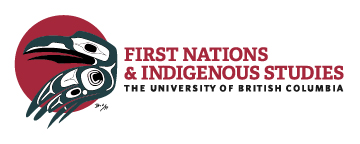In this particular class meeting, someone suggested that we should record our stories, pointing out that our experiences were identifying serious issues around the level of discussion of Aboriginal content in classrooms at UBC. While we may have been laughing about ignorant and racist comments when we told them to each other, at the time we experienced them, these comments were alienating, and in some cases, traumatic enough to prevent us from being able to attend class or do our coursework. We discussed creating a public record of these experiences in the form of videotaped interviews which would make these situations visible, and help identify the dynamics underpinning them. These records could also form the basis of discussions about how to best address these situations across postsecondary institutional levels.
The class where this discussion took place was for FNSP 400 – Practicum, a senior class that partners students with local Aboriginal organizations to design and conduct research projects that address a research need identified by these organizations. Interestingly, in this particular year, all of our projects were related by the ways in which they considered how media could be used to advance Aboriginal research interests; it was in this context that the foundations of this project were set in place.
Within a few months, we decided to pursue this project, designed to be a major research project that took place as an undergraduate directed studies course in the First Nations Studies Program at UBC. In the timeline of a 13 week, 3-credit course, we interviewed nine Aboriginal and non-Aboriginal undergraduate students at UBC, and recorded their interviews using digital video. We asked them to share their most memorable classroom experiences where the discussions of Aboriginal subject matter became problematic. We also asked them to reflect on the factors that they thought made these conversations difficult. The resulting videotaped interviews form the basis of this project and accompanying support materials.

